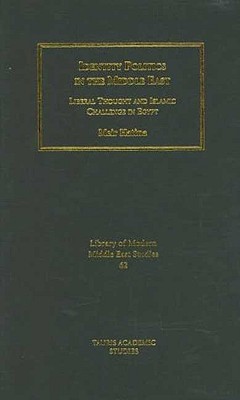
- We will send in 10–14 business days.
- Author: Meir Hatina
- Publisher: Bloomsbury Publishing PLC
- Year: 2007
- Pages: 288
- ISBN-10: 1845111354
- ISBN-13: 9781845111359
- Format: 14.2 x 21.6 x 2.5 cm, hardcover
- Language: English
- SAVE -10% with code: EXTRA
Reviews
Description
The role of Islam in the state has become one of the most contentious issues in modern Middle Eastern society. It holds a central position in every public debate over constitution, law and civil rights, as well as over the very essence of cultural identity. Here Meir Hatina sheds light on the issue of Islam in the state through the prism of Egypt during the twentieth century. He traces the continuity of Egyptian liberalism, from its emergence during the first half of the century through its repression following the July 1952 revolution, to the rise of secular liberalists such as Faraj Fuda in post-revolutionary Egypt. 'Identity Politics' reveals the assertive nature of the Islamic struggle, the desire to remake the state by fostering a close affinity between faith and power, worship and politics, which holds contemporary resonance for all Middle Eastern states.
EXTRA 10 % discount with code: EXTRA
The promotion ends in 16d.02:58:09
The discount code is valid when purchasing from 10 €. Discounts do not stack.
- Author: Meir Hatina
- Publisher: Bloomsbury Publishing PLC
- Year: 2007
- Pages: 288
- ISBN-10: 1845111354
- ISBN-13: 9781845111359
- Format: 14.2 x 21.6 x 2.5 cm, hardcover
- Language: English English
The role of Islam in the state has become one of the most contentious issues in modern Middle Eastern society. It holds a central position in every public debate over constitution, law and civil rights, as well as over the very essence of cultural identity. Here Meir Hatina sheds light on the issue of Islam in the state through the prism of Egypt during the twentieth century. He traces the continuity of Egyptian liberalism, from its emergence during the first half of the century through its repression following the July 1952 revolution, to the rise of secular liberalists such as Faraj Fuda in post-revolutionary Egypt. 'Identity Politics' reveals the assertive nature of the Islamic struggle, the desire to remake the state by fostering a close affinity between faith and power, worship and politics, which holds contemporary resonance for all Middle Eastern states.


Reviews